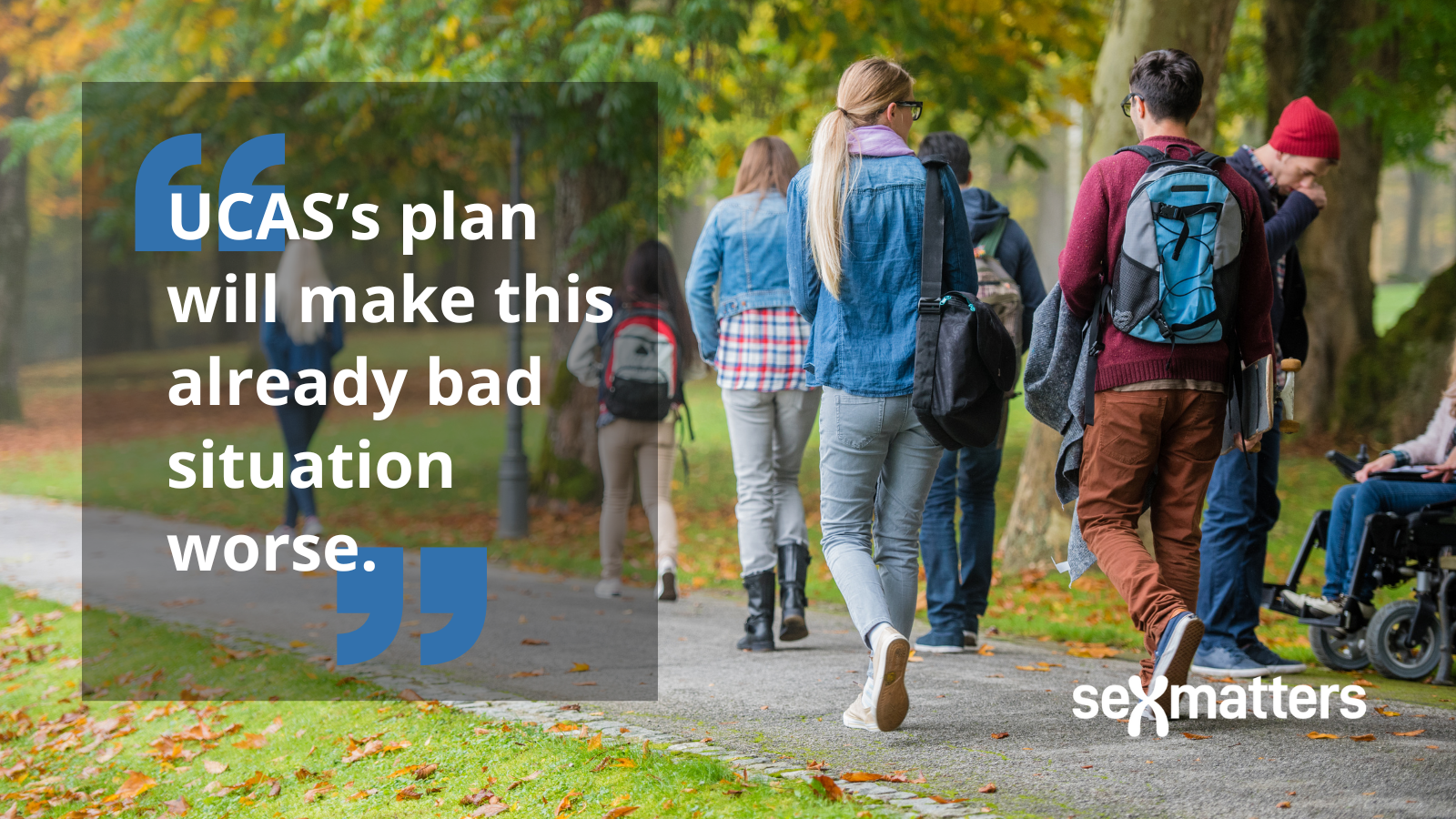Why we have written to UCAS about data

The latest attempt to destroy data on sex by replacing it with data on self-declared “gender identity” is in the higher-education system. The Universities and Colleges Admissions Service (UCAS), the national undergraduate admissions service that acts as gatekeeper to all university places, is planning to change an already-flawed question about the sex of applicants (although it offers only two options, male and female, the guidance says would-be students should “select the gender you most identify with at this time”).
The replacement will be even worse. The allowable responses will become: man / woman / I prefer to use another term / I prefer not to say. All four categories will therefore become mixed-sex.
On 11th November Sex Matters wrote to UCAS deploring this decision and pointing out that without accurate data on the sex of first-year undergraduates, it will be impossible to track differential outcomes long-term. We have also pointed out that data on sex is not classed as “special category” under data-protection rules, meaning that asking for and storing it is straightforward, but data on gender identity is. We also wrote to the Office of the Statistics Regulator and to the Joint Information Systems Committee, the body with statutory responsibility for collecting and publishing data for all higher education.
We have asked UCAS for details of any equality impact assessment it carried out, and more information about its plan for how the sector will handle the resulting data-quality issues. Receipt of our letter was acknowledged on 17th November, but we have not yet had a substantive reply. If the eventual reply is not satisfactory, we will follow up with the Office of the Information Commissioner, which regulates the collection and storage of personal information – such as self-declared gender identity.
We are not the only group worried about the loss of data on sex in the higher-education system. A group of concerned academics has sent an open letter to the Department for Education’s ministerial team, cc’ing a range of interested parties, including Clare Marchant, the chief executive of UCAS. In it, they call on ministers to ensure that “data on sex is included in all data collection and reporting on schools, testing, public examinations and university applications and admissions”. A short write-up appeared in the Sunday Times on 4th November (it was not in the digital edition; Professor Alice Sullivan, who coordinated the open letter, has archived a copy here).
Sex Matters will continue to press for an end to the conflation of sex and gender identity in data on pupils and students, and indeed throughout all government and and official statistics. If the regulators who oversee official statistics and data protection are unwilling to act, we agree with the concerned academics that the government must step in.
